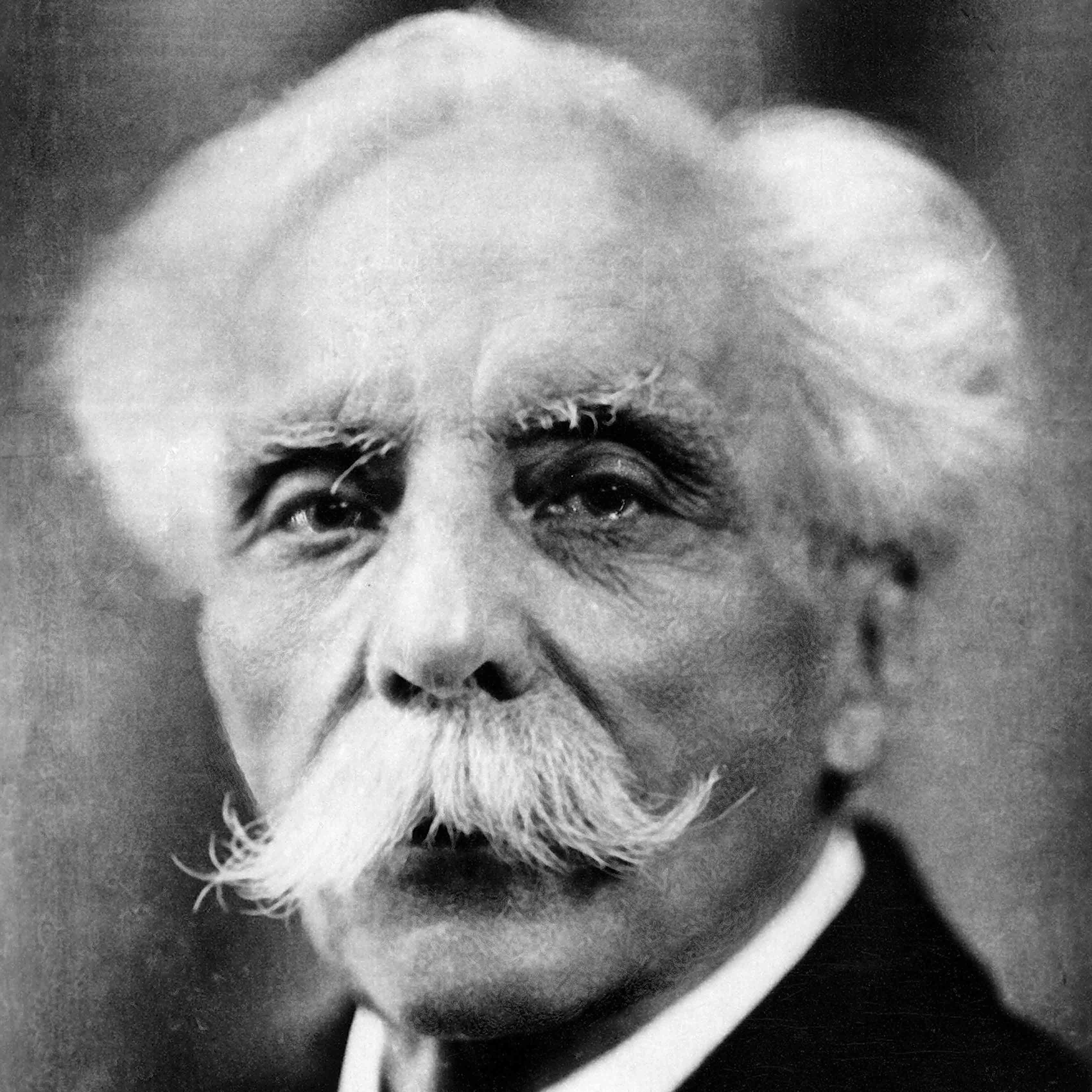
Fauré
Born: 1845
Died: 1924
Gabriel Fauré
The musicologist Paul Landormy observed of Fauré that 'his language, always moderate, is like well-bred discourse. He never raises his voice too high. He works in quiet colours. He is most discreet. He leaves much to be inferred. And his reserve is something quite as eloquent as louder outbursts'.
Explore Fauré's life and music...
Top 10 Fauré recordings
Outstanding recordings of Fauré's greatest works, featuring Marianne Crebassa, Quatuor Ebène, Steven Isserlis, Gérard Souzay and more... Read more
A guide to the best recordings of Fauré's Nocturnes
The often-ignored darkness lying deep within Gabriel Fauré’s music is well illustrated by his Nocturnes. Bryce Morrison assesses the recordings by pianists brave enough to tackle them... Read more
What a quiet, undramatic life he had. The son of a village schoolmaster promoted to assistant inspector of primary schools, Gabriel was the sixth (and unwelcome) child to be born to the family. He was fostered out until he was four and never seems to have enjoyed much warmth or family love. It’s said that a blind woman heard the eight-year-old boy playing the harmonium one day and urged his father to take him to Paris to study. Fauré was introduced to the newly opened Ecole Niedermeyer (the ‘Ecole de musique réligieuse et classique’). Niedermeyer was so impressed that he offered him a place at the school free of charge. Following Niedermeyer’s death in 1861, Fauré’s teacher became Saint-Saëns. The two developed a close friendship which was to last until Saint-Saëns’s death.
Fauré’s career thereafter is notable for its lack of thrust. He spent four years in Rennes as the church organist, returning to Paris in 1870 on the eve of the Franco-Prussian war (he joined the light infantry for a short spell). He found a succession of increasingly important organ posts, eventually landing the top job at the Madeleine in 1896; parallel to this he took conducting and composition classes at the Ecole Niedermeyer and became a professor of composition at the Paris Conservatoire. Meanwhile, he had married in 1883 the daughter of a successful sculptor.
As a link to the Impressionists and as a teacher of the future generation of French composers, Fauré was of the utmost importance. One only has to read the names of those who came under his undemonstrative tutelage: Ravel, Enescu, Roger-Ducasse, Florent Schmitt and arguably the greatest teacher of the 20th century, Nadia Boulanger. Unlike his contemporaries Chabrier, d’Indy and Lekeu, Fauré did not succumb to the fashionable habit of Wagner-worship: throughout his songs and chamber music there is an unmistakable ‘Frenchness’ about the language. In larger forms he was unsuccessful (operas and symphonies were not his forte) but his songs and idiomatic piano and chamber music attracted a growing band of admirers from the mid-1870s.
Fauré was made director of the Conservatoire in 1905, a post he retained for 15 years until increasing deafness made it impossible for him to continue to carry out his duties. All through his tenure he was determined, rather pathetically, to keep his handicap a secret; close friends helped him in this and, though his final works (the Second Piano Quintet and the Trio in D minor) were written when he was stone deaf, when his predicament was revealed four years after his death, many people who knew him were shocked at the revelation.
‘I have been reserved all my life,’ he wrote in a letter to his wife, ‘and have only been able to let myself go in certain situations.’ To his son, Philippe, he confided: ‘For me…music exists to elevate us as far as possible above everyday existence.’

Gramophone Digital Club
- Digital Edition
- Digital Archive
- Reviews Database
- Full website access
From £8.75 / month
Subscribe
Gramophone Full Club
- Print Edition
- Digital Edition
- Digital Archive
- Reviews Database
- Full website access
From £11.00 / month
Subscribe
If you are a library, university or other organisation that would be interested in an institutional subscription to Gramophone please click here for further information.





